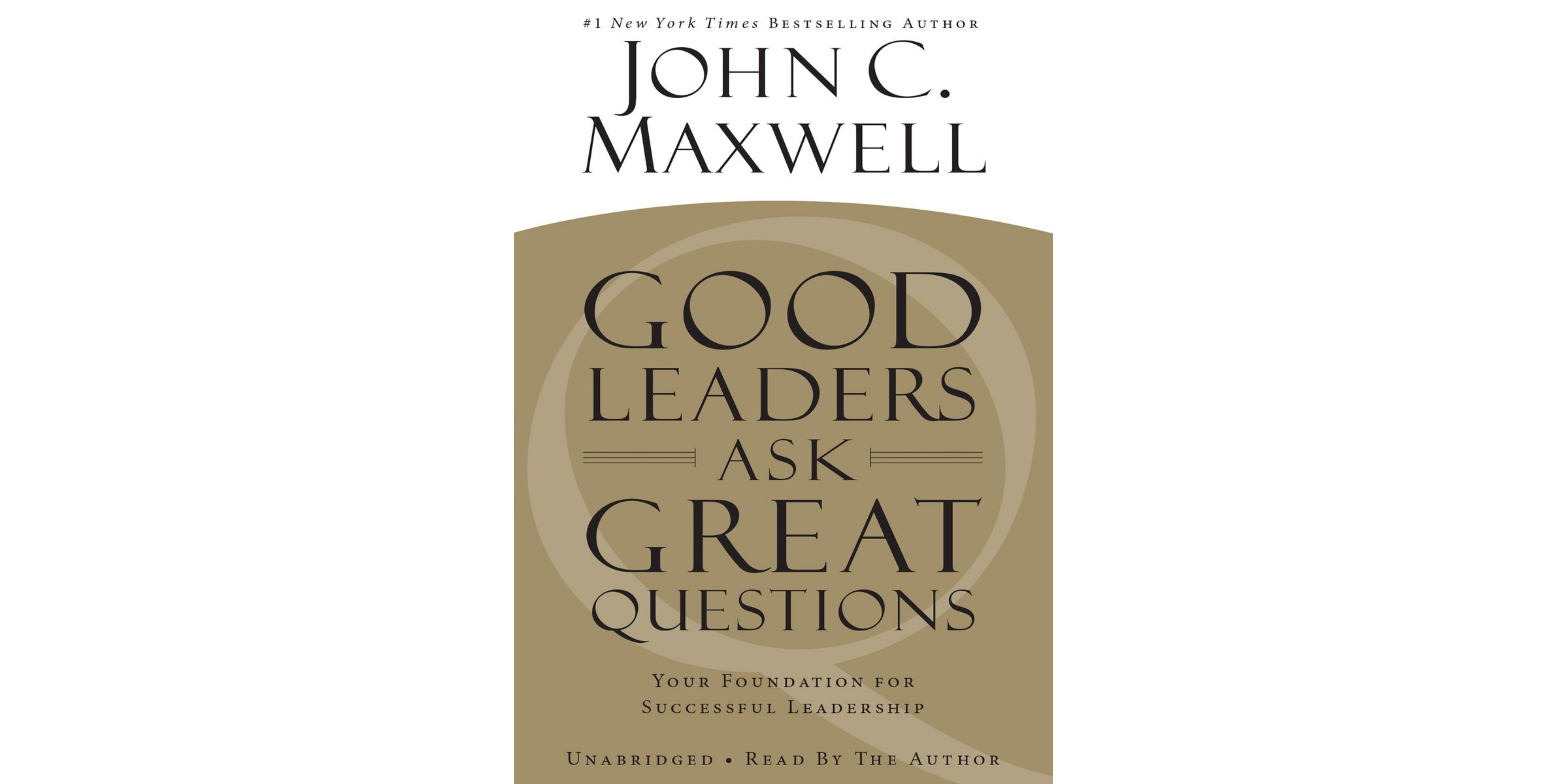By John C. Maxwell
New York, NY: Center Street (2014)
Hardcover, 320 pages
Reviewed by Jimmie Gibson
John Maxwell has been one of the leading contributors to leadership growth and development. He has touched on four major areas: leadership, equipping, attitude, and relationships. Many times leaders look at financial and physical aspects to sustain or improve company growth. The art of asking the right questions is the most valuable tool to have in your leadership tool belt. Maxwell comments on page 3:
Questions—for forty years I’ve asked questions on the subject of leadership. You might think that as time has gone by, and I’ve received thousands of answers, questions have become less important to me. But the opposite has been true. The more questions I ask the more valuable I recognize them to be.
Pretty amazing thought considering his vast experience.
Questions have too frequently been seen as an indication of incompetency, especially in a leadership position. I believe the perception that leaders should have all the answers has played a significant role in this misperception. Wise teachers in high school always told us that the only dumb question is the unasked one. Most organizations have people in them from various cultures, ethnicities, and backgrounds where leadership is seen differently. This is frequently the case in church or religious organizations. Reducing the distance between people from different cultures, etc., can be done by simply encouraging dialogue beginning with questions.
The use of questions in religious and/or volunteer type organizations can be empowering when used in the right way. When you ask questions that allow members’ input to be used in the building up the overall growth of the organization, it empowers the members and improves engagement. In a quote from Peter Drucker on page 7, Maxwell says that he knew the secret: “Successful leaders relentlessly ask questions and have an incurable desire to pick the brains of the people they meet.”
Maxwell later places a chart in his book (p. 75) and lists four things that help to create an environment that values questions. The points are: 1. Value each team member, 2. Value questions more than answers, 3. Value the potential of your team, and 4. Value the improvement of a good idea.
Having an environment that embraces the use of questions will allow subordinates to feel comfortable in asking questions from leaders without feeling inferior or a potential liability to the company or organization. I have seen churches where pastoral leadership did not value the questions nor the team members. This lowered morale and enthusiasm to actively participate in the ministry of the church. Not only did leaders not appreciate the questions, they did not like the answers or the suggested solutions to grow the church.
There are not many deficiencies in this book to mention. If I could ask Mr. Maxwell one question, it would be why was the section on “What questions do I ask myself as a leader?” Significantly shorter (20 pages) than the “What questions do I ask my team members?” I feel there may have been more he could have expounded upon in terms of what questions can be used or asked when successful. We have looked at our failures and shortcomings, and have found out a way to ask the necessary questions to correct them. However, most leaders do not ask questions while in the middle of success. I would like to know how to creatively ask questions to maintain the current success? This can be vital for a church or volunteer organization.
I would recommend this book to anyone in leadership or moving into leadership. A leader cannot and should not think that they know everything there is to know. Maxwell did an excellent job of showing the importance of asking questions and allowing them to be asked. I think one of the important things he brings out is that questions are just as important as the answers. He states, “By asking questions, I harness the horsepower of every member of my team, and together we pull the weight of the organizations” (p. 289).
Jimmie Gibson is a Masters of Arts in Pastoral Ministry student at Andrews University in Berrien Springs, Michigan, USA.

